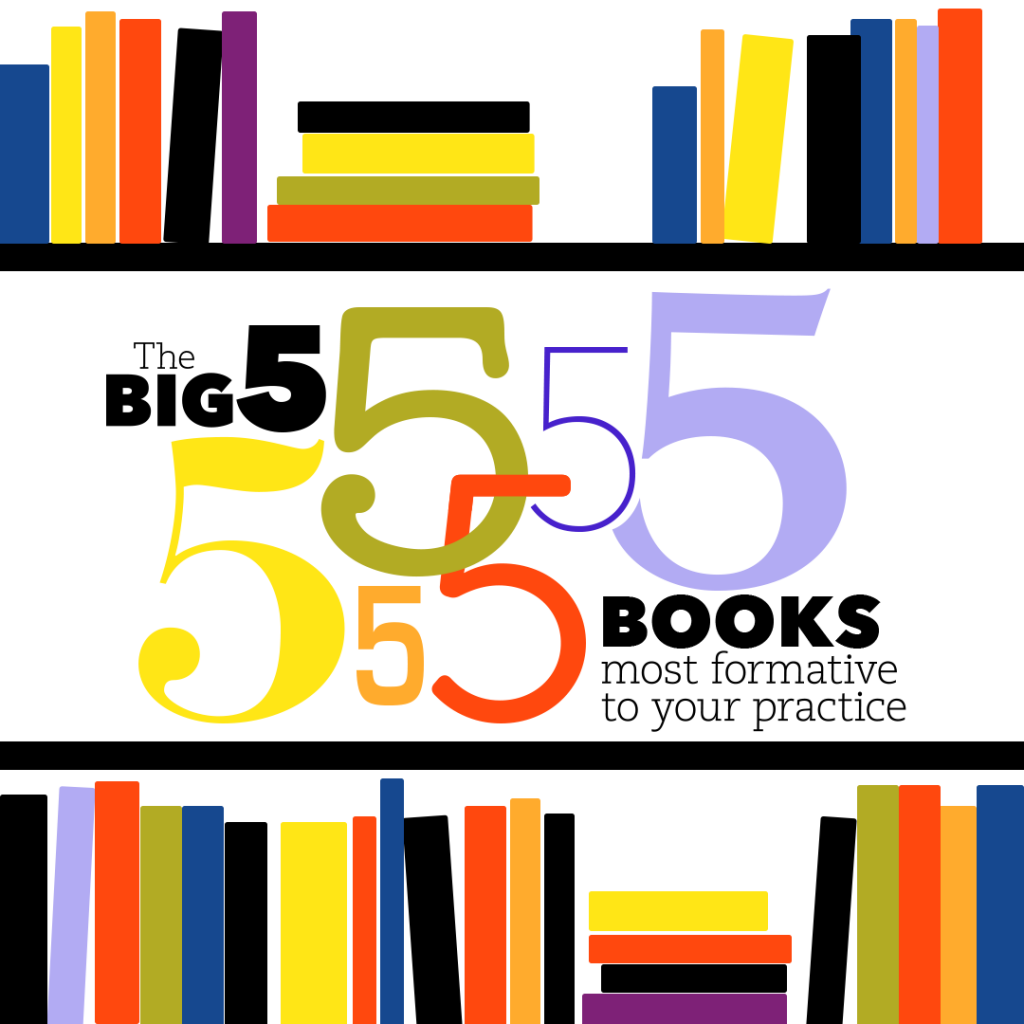
Every so often we like to ask our authors about the books that most affected their teaching, the books that served as turning points in their practice or opened their eyes to a new way of approaching their work, thinking about education, or seeing children. In this installment, we bring you the professional book top five of Leila Christenbury, a 40-year veteran teacher both in secondary English and higher education, former editor of English Journal and past president of the National Council of Teachers of English, and currently Commonwealth Professor at Virginia Commonwealth University. Her most recent book, the fourth edition of Making the Journey was published by Heinemann in September 2016.
Let me first confess. I am a consistent and abysmal failure regarding selecting “greats”: I have never been able to settle on a favorite author, a favorite book, or to determine which single text, should I be marooned on a desert island, would be my constant companion.
It’s not that I love them all; it’s that I love too many of them, and I love them for different reasons.
So choosing one is never easy for me—and I suppose there is some consistency in this failure in that I also cannot choose just one in other likely categories: movies, trips, songs, pieces of art, or even memorable meals. The likely candidates are just too numerous.
But for this brief essay, I will, with some pain and difficulty (and some cheating, which will be obvious as you read), highlight five professional books that have shaped my thinking.
♦ ♦ ♦
Literacy in American Lives, Deborah Brandt
Who knew that changing literacy practices could be so engaging? Just as interesting as the foundational Shirley Brice Heath’s Ways with Words (yes, I’m cheating), this book is a fascinating look at what constitutes a definition of literacy and how it morphs over time (Brandt details 1895-1985). In a post doc many years ago I was wisely warned against embarking on a just such study of the changing definition of literacy—I abandoned the effort, and good move on my part, as Brandt has done the job superbly. She puts a human face on the subject and, through the work and life specifics of ordinary people, clarifies the issues. This is a smart, engaging book, and it made me see literacy very differently.
♦ ♦ ♦
Clinical Supervision, Robert Goldhammer
Still in print these many years later but my only copy lent out, never to return to me, I read this book in my doctoral studies, and while its tenets are surely well known to most, they were a bombshell to me. Goldhammer sets up a workable, consistent strategy for observing teachers and, through the teacher’s own self- designation of what matters, what to look for, what is important, the observer can then make intelligent and perceptive—as well as individualized—suggestions and assessments about any classroom event. In hindsight this strategy seems so self-evident—but Goldhammer in Clinical Supervision makes it workable and clear. For me, it completely changed how I saw classrooms and teachers, and it also influenced the foundation of my own teacher preparation work.
♦ ♦ ♦
The Horace Series, Theodore A. Sizer
If there is a Mount Olympus where education gods reside, Ted Sizer lives there. For me, his series of books, Horace’s Compromise, Horace’s School, and Horace’s Hope (I’m cheating again; oh well), envisions new structures for American high schools and real understanding of teachers and students. The three books constitute a superior commentary on American secondary education. Sizer was both a visionary and a practical man, and the wisdom in the three Horace books is undeniable. He also attempted, in his later career, to operationalize his vision into the Coalition of Essential Schools, and while the experiment did not endure, the landmark effort was terrific.
♦ ♦ ♦
The English Teacher’s Handbook, Stephen N. Judy (Tchudi) and Susan J. Judy
Steve Tchudi (his original family surname and one he reclaimed after the publication of Handbook) was the youngest editor ever of NCTE’s English Journal and possibly one of the youngest presidents of NCTE. He is a brilliant and wide ranging researcher and thinker (as is his co-author and spouse, Susan), and this comprehensive and creative look at what an English language arts teacher can accomplish in a classroom opened many doors for me
♦ ♦ ♦
Four Quartets, T. S. Eliot
It may seem odd to include in a list of five professional books a collection of poems. The revered, even canonical Anglophile Eliot is known for his turgid cultural philosophy as well as influential and occasionally incomprehensible poetry (notably “The Wasteland”). Yet Four Quartets is a huge part of my professional influence. Read first as part of an undergraduate English class, as the years have gone on it has endured in my life as a teacher. While I no longer read Four Quartets every month—as I used to do regularly—its mix of human experience, Christian theology, and Eastern philosophy (the Bhagavad Gita is part of its source, and the dialogues between Krishna and Arjuna weave in and out of the work) continues to guide me. There are far more questions than answers in Four Quartets, but there is also hard-won wisdom. Because teaching is for me immensely personal, part of my interior and even spiritual life, Four Quartets continues to instruct regarding ego, renunciation, faith, and the power of persistence. Re the last quality, Eliot dryly writes that we are only undefeated because we persist. He concludes: “For us there is only the trying. The rest is not our business.” Some could see this as pessimistic; I find it enormously encouraging.
♦ ♦ ♦
I have shamelessly cheated numerous times in this essay, so I will go for broke with four runner-ups. Among them I include
Lawrence A. Cremin’s The Transformation of the School (a history of the Progressive Movement which changed my philosophy of education); Ken Macrorie’s Twenty Teachers (where I learned that good teachers are in many different subject areas and have many different skills); Eliot Wigginton’s Sometimes a Shining Moment (about the Foxfire project, a book now largely unread and even discredited due to the deplorable personal conduct of the author--but still a powerful record of how students and community can interact and be generative); and a Kappan essay from decades ago, “Teaching as Failing” by Richard A. Hawley (which few of my students enjoy reading but which offers great insight regarding the daily struggle of every teacher).
So, there you have it. A list of five professional books that have profoundly shaped, changed, and challenged my thinking about education and the profession of teaching. Wait, did I say five? I meant twelve …



